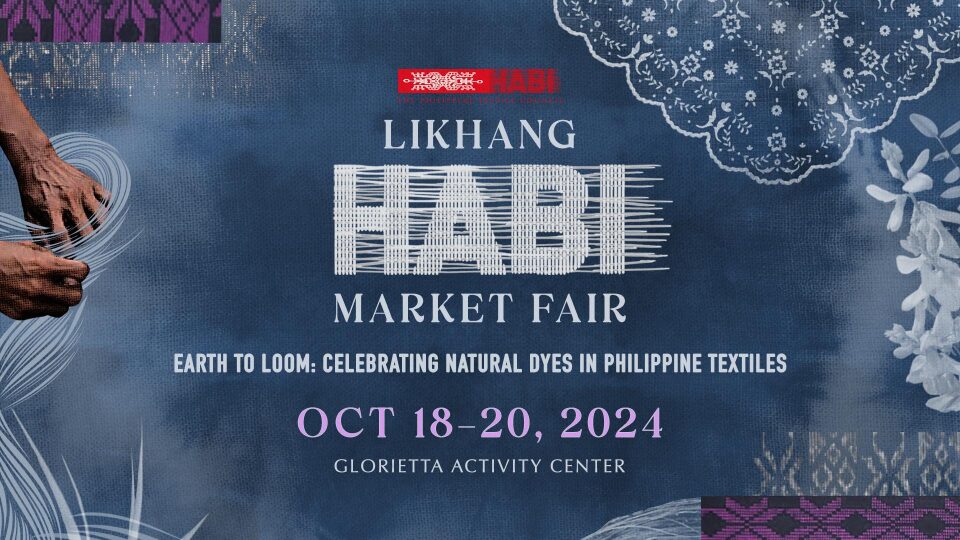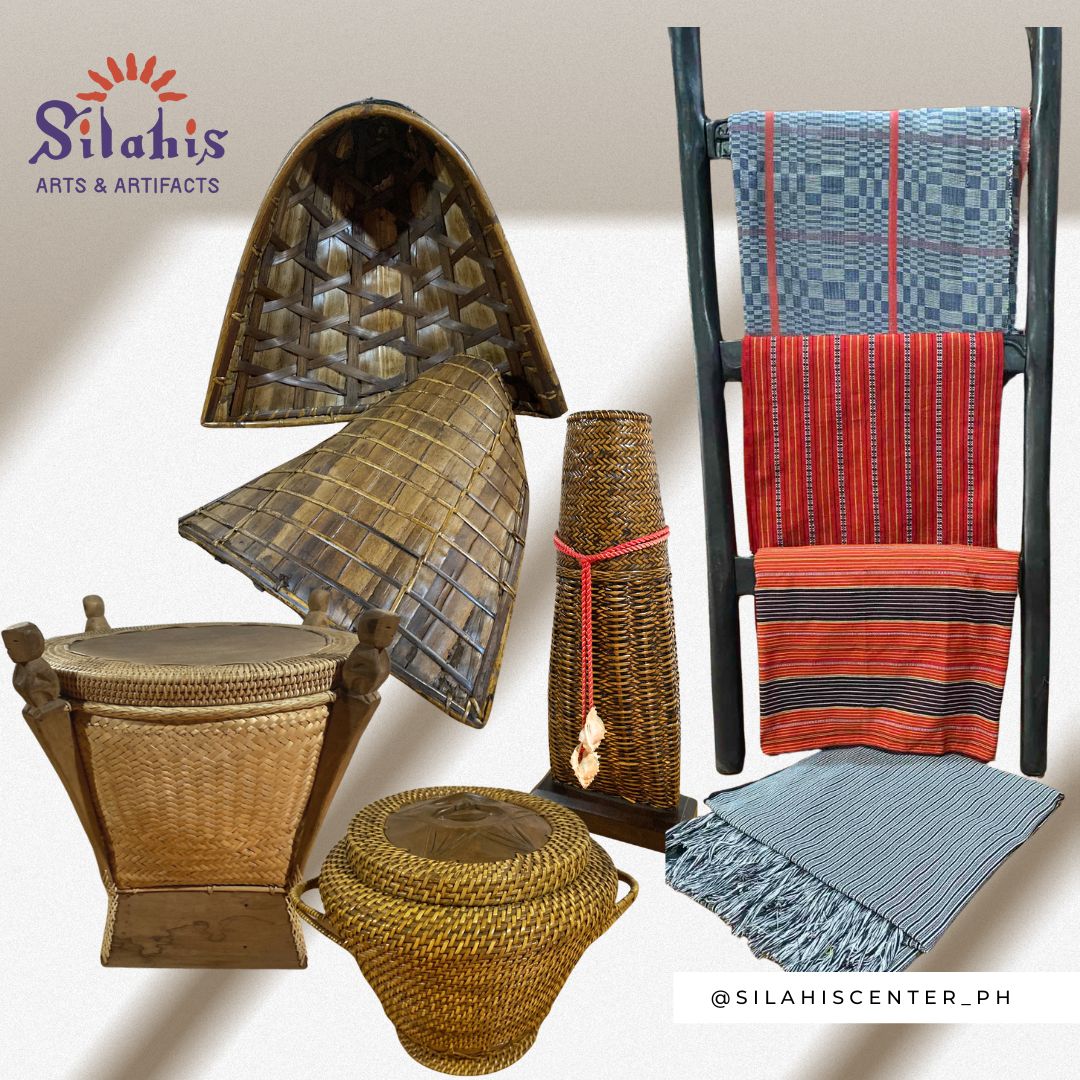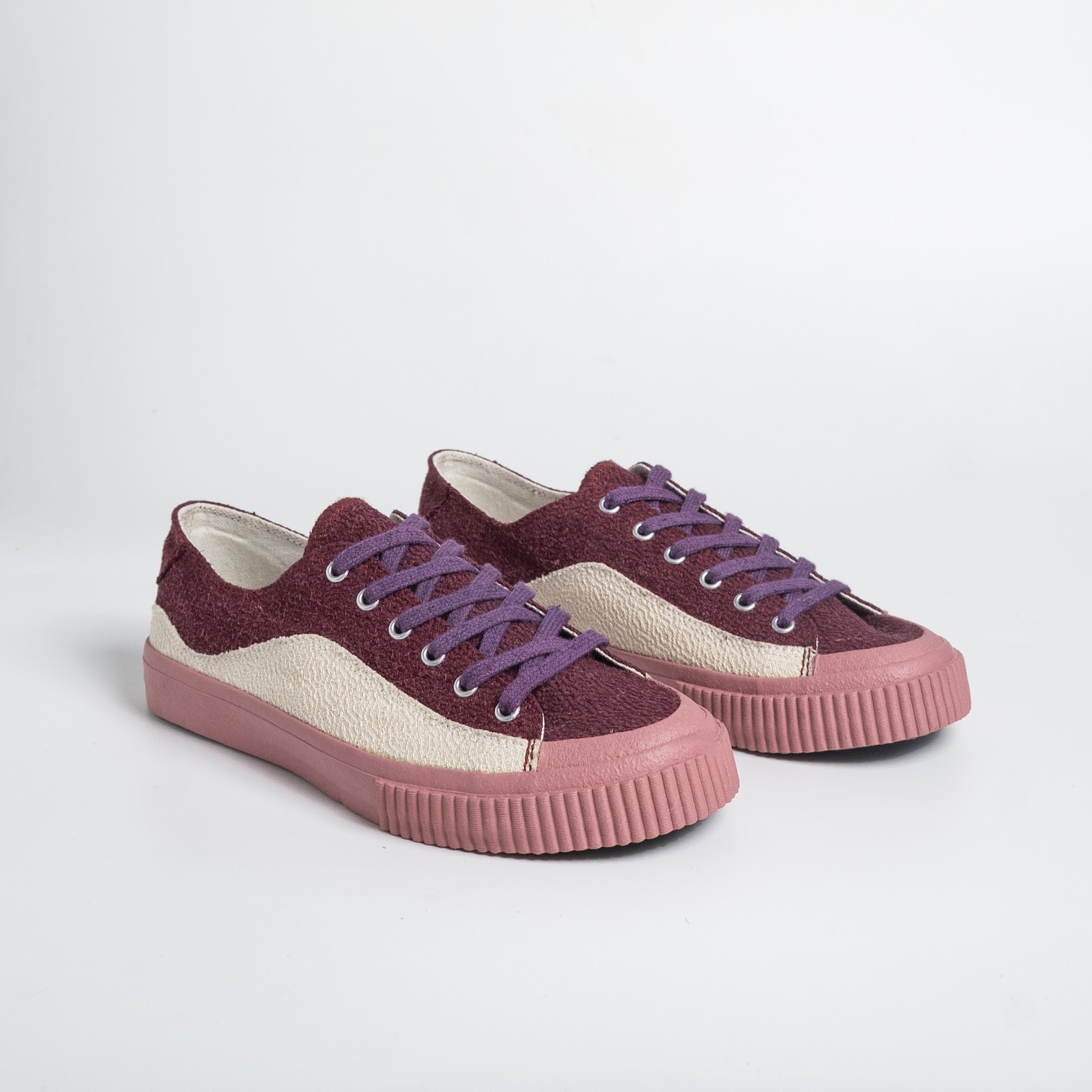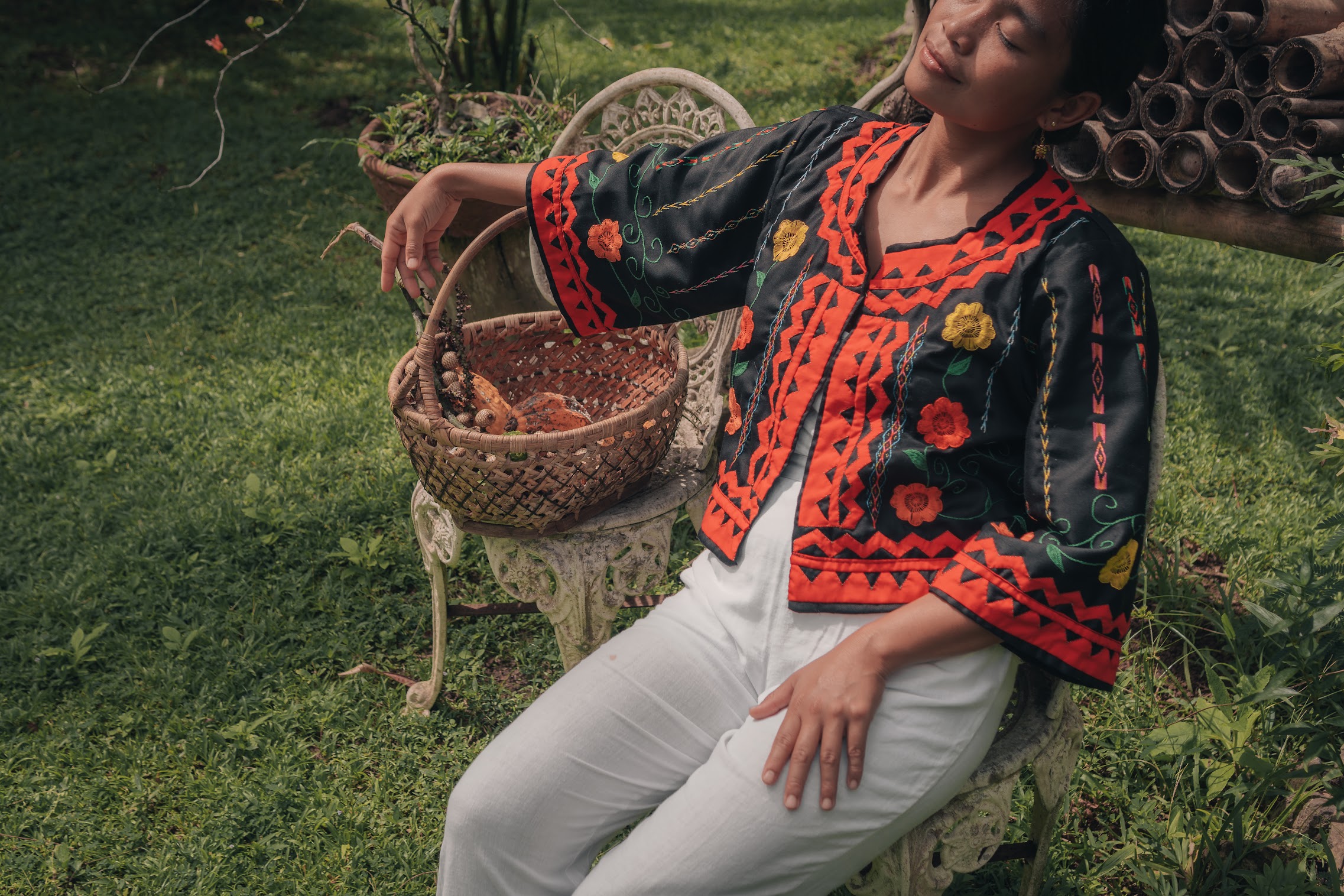The 14th Likhang Habi Market Fair gathers the country’s best weavers and artisans, bringing traditions to the next generation
(Makati City, September 18, 2024) … HABI: The Philippine Textile Council is gearing up for this year’s Likhang Habi Market Fair, happening at the Glorietta Activity Center from October 18 to 20, 2024.
This is the 14th time HABI is organizing the event, as part of its mission to preserve, promote, and enhance Philippine textiles through education, communication, and research, using public and private resources.
HABI was established in 2009. “We started it because we realized that there was no textile society in the Philippines,” said HABI founder and chairman emeritus Maria Isabel “Maribel” Ongpin.
While the country’s ASEAN neighbors had groups dedicated to promoting and preserving their traditional textile practices and cultural heritage, the Philippines didn’t. And so the ladies of HABI stepped up to the plate, dedicating their time and energy to their cause—“the preservation, development and modernization of our Philippine textiles, which are quite varied, quite unique and very colorful, from all over the archipelago,” Ongpin said.
Likhang Habi Market Fair was their first project and it has grown so much over the years—from featuring 12 vendors to over a hundred in its recent editions. This year’s fair gathers weavers, artisans, designers and brands from Luzon, Visayas and Mindanao—Cordillera, Zamboanga, Ilocos, Socksargen, Negros, Bangsamoro and more.
HABI travels to different corners of the country, visiting weavers and artisans, getting to know them and their art, finding that magical combination of talent and tradition in the grassroots, and opening doors for them. HABI secretary Rambie Katrina Lim said, “We realized that many of the weavers and crafters are actually quite isolated, so they need a platform to grow and show their product and tell their story. The market fair is a chance for them to interact with a bigger market.”
Likhang Habi Market Fair gives the weavers and artisans the opportunity to showcase and sell their creations—textiles, garments, bags, home decor, jewelry and more. Rambie said, “The variety of products is always amazing. They also know that at Likhang Habi, they can sell the nicer items because the customers who come are quite discerning and also know what great textiles are.”
There are many Likhang Habi Market Fair success stories—artisans who grow from the grassroots to greatness. The passionate women of HABI find joy in witnessing that growth.
“We have a lot of examples of that, like Carlo Eliserio and Raquel Eliserio. Now he’s being invited to and attending international conventions and fairs as well. And he also has a place in a department store now, in Rustan’s. There’s a progression. We really invest and watch our vendors grow,” said HABI president Mia Villanueva, who started her relationship with HABI as a vendor—her bags and accessories brand MCV Designs participates in Likhang Habi Market Fair.
Adelaida Lim, HABI president emeritus said, “We have seen many weavers develop into competent entrepreneurs while improving their craft skills.”
Not all the weavers can afford the costs that come with participating in the market fair so the group has also introduced a sponsorship program that allows people to help them make it there.
Likhang Habi Market Fair is HABI’s main project. “It’s what gets the textiles out there, and how people get interested about it, and how we can help our weavers through selling and entrepreneurial spirit,” said Villanueva.
But it’s just one part of what they do.
They’ve published four books on Philippine fabrics and produced three documentaries. They hold the annual Lourdes Montinola Piña Weaving; and the Eloisa Hizon-Gomez Abaca Weaving competitions. They teach and give lectures, connect and collaborate with other organizations here and abroad, and educate about and advocate for Philippine textiles and the people behind them.
The people of HABI “envision a strong Philippine Textile Culture that is vibrant, diverse and very much a part of our modern present” and their work has helped turn that vision into reality.
Thanks to HABI’s efforts, traditional textiles are no longer viewed as just material for native costumes, they’ve become part of daily life, “as contemporary attire with a relevant place in current lifestyles,” Adelaida said.
Another indicator of their success is the growing interest in weaving and Philippine textiles among young people. For a long time, there was concern that weaving was a dying art, that the next generation wasn’t interested in continuing what those before them had started.
Adelaida recalled, “In the early days, when we started going around, visiting the weavers, one of the things that I observed is a lot of the artisans were quite elderly… I felt it was going to die if we just let it go, if we didn’t give it any attention. But lately, I’ve noticed that more and more young people have gone into it.”
One young weaver, LoveLove Monon, granddaughter of Manlilikha ng Bayan Salinta Monon, is featured in HABI’s “Threaded Traditions” documentary “Memoirs of a Textile: Inabal of the Bagobo-Tagabawa.”
Adelaida said, “She decided to take upon herself to continue the traditions that her grandmother had left, and that’s a signal. It shows you that it’s going to continue to exist, it’s going to evolve, and maybe innovations will come.”
Wanting to push for innovation, HABI also decided to create a category in their Piña Weaving Competition for weavers under 30 years old. “We were quite surprised by the number of young people who joined. That indicates that it’s now in the hands of the next generation, and that it’s not going to disappear with the death of older practitioners,” said Adelaida.
It’s not just young weavers who are taking interest. HABI also has many young volunteers who are eager to help the cause, including Filipino kids who grew up abroad and are wanting to reconnect with their roots. Among the volunteers are also new interns who have a lot of ideas for products that appeal to people their age. Villanueva said, “One intern is creating her own paper dolls. At HABI, we really focus on education because we want to transfer it to the next generation.”
Even within HABI leadership, there’s been a passing of the torch. Ongpin said, “They call me the founder but Laida Lim was right next to me, and so were other people. We have seen the interest expand, and now the players are very active. There’s Mia and Rambie taking over. We’re in the council of advisors. We’ve done our work, but
we’re still interested, and we still participate, but we pass the baton to the younger people and that’s good because it has to go down to the next generations.”
Villanueva said, “There’s so much more we can do. We’re going to bring it further. I have visions of what our next step is and what we want the council to be. It’s exciting.”
The year’s Likhang Habi Market Fair theme, “Earth To Loom: Celebrating Natural Dyes in Philippine Textiles,” is something that also speaks to the younger generation, a generation known for their concern about climate change and passion for sustainability.
Villanueva said, “Everywhere in the world, people are talking about natural dyes. We want to put it in people’s minds. This is where we should start moving towards.”
The Philippines is rich in plant dyes, said Kat Palasi, a textile artist and creative entrepreneur from La Trinidad, Benguet, who has been joining the Likhang Habi Market Fair since 2013. But what we have are raw materials—not dyes in powder form that can easily be bought and used by weavers. Palasi said, “When you go abroad and you go to craft stores and natural dye stores, it’s all in powder form, and we don’t have that, except for indigo, which is sold by a few small shops here in the Philippines.”
Maybe it’s the new generation who will make a difference. And HABI is here to help them make it happen.
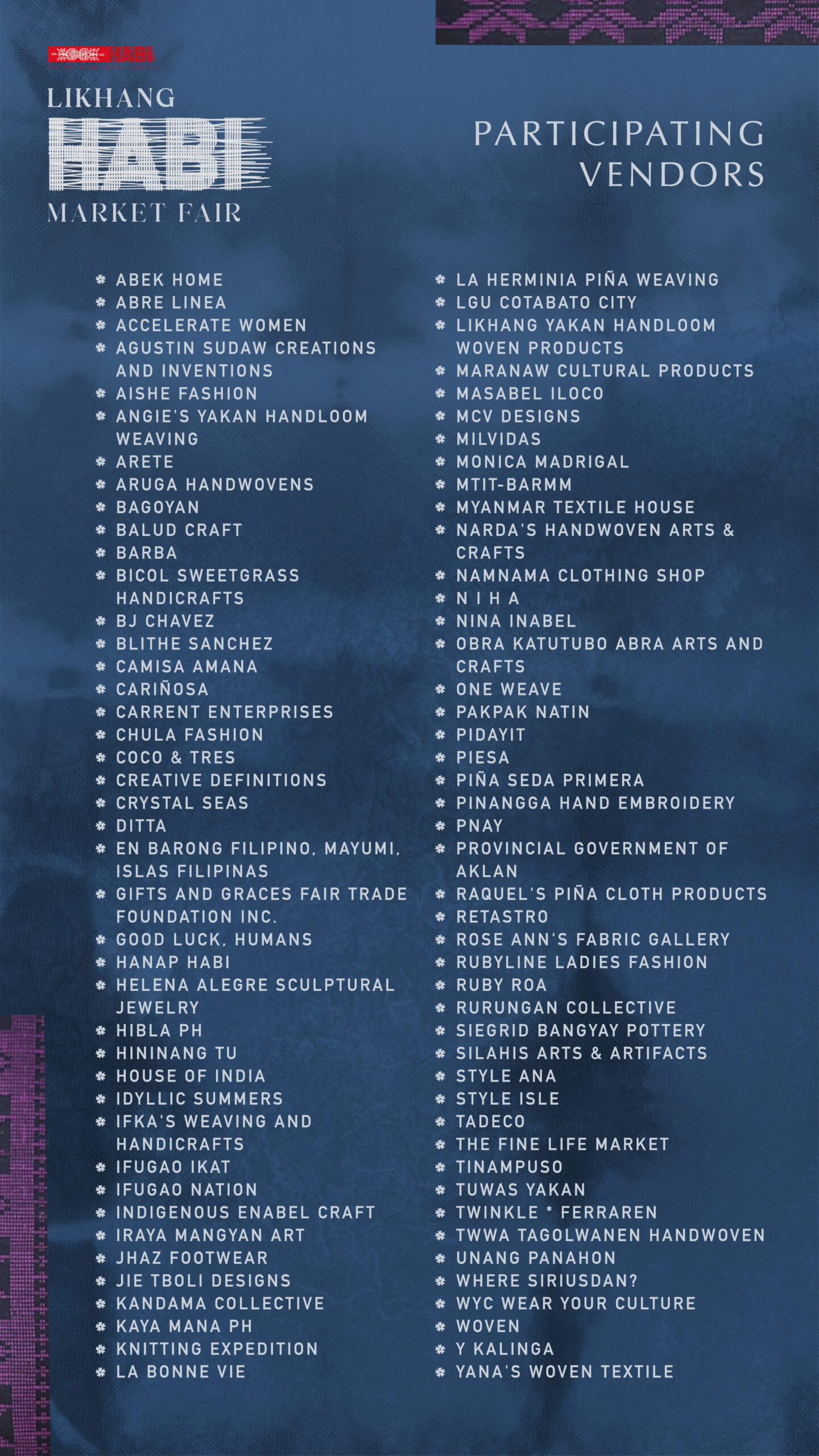
Visit www.habiphilippinetextilecouncil.com and find HABI: The Philippine Textile Council on Facebook and Instagram (@HABICouncil).


